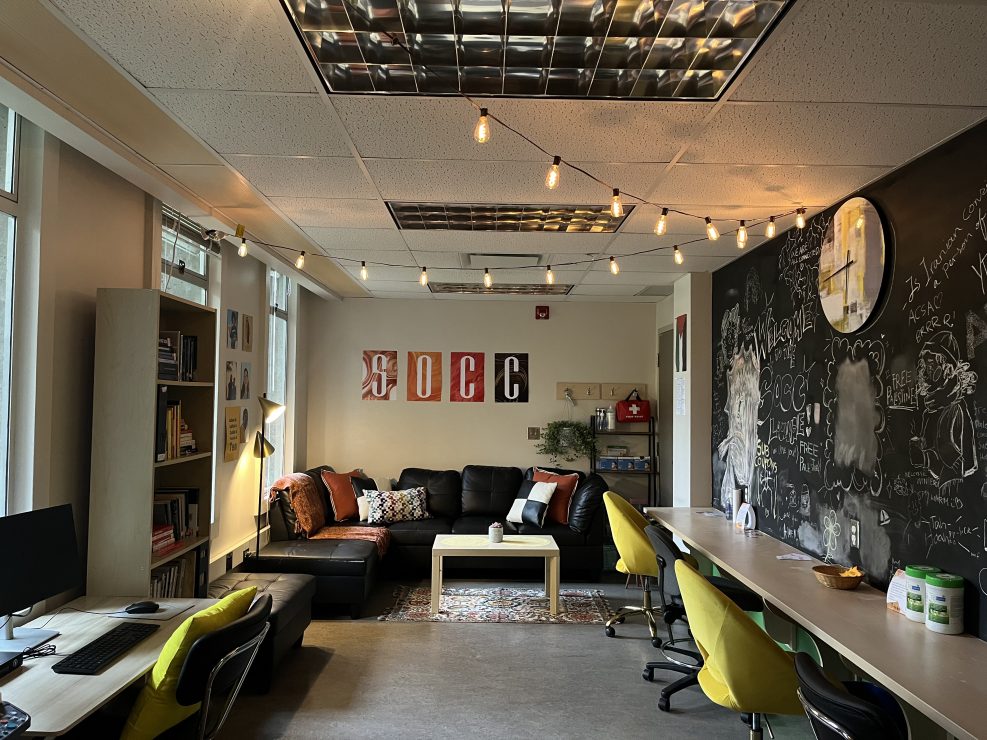New program will combat food insecurity amongst BIPOC students

Photo courtesy of Taha Qureshi.
On July 31, the Students of Colour Collective (SOCC) announced that they will be opening a communal pantry for Black, Indigenous, and other People of Colour (BIPOC) on campus. The pantry is set to open this fall and aims to address food insecurity amongst UVic students by providing free food to BIPOC members of the UVic community.
SOCC is one of UVic’s on-campus advocacy groups and serves all self-identifying BIPOC students in various ways.
“We create opportunities for community within the BIPOC students here as UVic, opportunity for education, opportunity for resources, advocacy,” said Taha Qureshi, the Coordinator of SOCC in an interview with the Martlet.
Over a year ago, SOCC began conceiving of building a communal pantry in their space with the aim of boosting food security amongst BIPOC students at UVic.
“Food insecurity is so, so prevalent in our society today, and it impacts a lot more people than we think it’s impacting,” said Qureshi. “There’s a reason the UVSS food bank works and runs and exists on this campus.”
In 2023, the UVSS launched Fed Up, a campaign with the goal to address food insecurity. According to the campaign’s launch statement, the UVSS found that 63.8 per cent of UVic students expect to face food insecurity.
According to a study conducted by PROOF — a joint research program between the University of Toronto and the British Columbia Centre for Disease Control — 17 per cent of British Columbians face food insecurity. A UVic student is three times as likely than an average B.C. citizen not to know where their next meal is coming from
Additionally, Food Banks Canada reports that racialized people face significantly higher rates of food insecurity in Canada compared to non-racialized individuals. They report that 39.2 per cent of Black households and 33.4 per cent of Indigenous households across Canada face food insecurity, whereas Canada’s baseline is 16.9 per cent.
To address this disparity, this past spring, SOCC passed a referendum with 61.9 per cent of voting students saying “Yes” to a fee increase that supports the collective. This funding increase enabled the advocacy group’s Communal Pantry Project to become a reality.
In addition to food, the Communal Pantry Project will also have a number of domestic items such as toilet and tissue paper, as well as a “quick fix” station. Qureshi hopes that this “quick fix” station will house small kitchen appliances, like a toaster, so that students are able to prepare small meals and snacks using the pantry’s resources.
The Communal Pantry Project also hopes to invite BIPOC students into the SOCC lounge, which is located inside the Student Union Building in room B122. SOCC’s lounge has a number of desktops, printer access, a communal library, and a couch, and is being actively re-vamped for the fall.
“We’re really hoping to have this lounge sort of feel like a third space for BIPOC students when they’re on campus,” said Qureshi. “We want people to know we exist and that we’re here.”
The advocacy group runs a number of programs throughout the year, including their Artist in Residence, who typically runs art programming, and the Pulse Zine which is developed by a network of BIPOC students to build an anti-racist, multiracial, anti-oppressive movement.
Those wishing to support or get involved with SOCC’s Communal Pantry Project have a variety of options to do so. Qureshi encourages BIPOC students to get involved by attending SOCC’s meetings, connect with people in the collective, and keep an eye out for announcements about their pantry committee.






